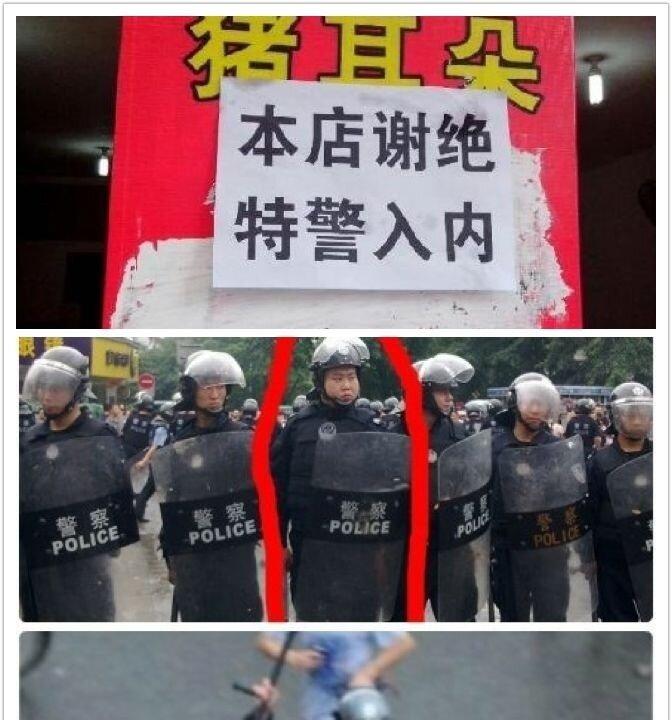Riot Police Face Wrath of China’s Internet
There was a time when as a member of the People’s Armed Police (PAP) in China you could fire into crowds, beat citizens senseless, and get away with it all.

Residents of Shifang took photographs of riot police, which netizens circulated widely online, ridiculing the Communist Party's security forces. The taped up notice in the top photo reads: "People’s Police not welcome in this shop." Weibo.com
|Updated:
Matthew Robertson is the former China news editor for The Epoch Times. He was previously a reporter for the newspaper in Washington, D.C. In 2013 he was awarded the Society of Professional Journalists’ Sigma Delta Chi award for coverage of the Chinese regime's forced organ harvesting of prisoners of conscience.
Author’s Selected Articles






